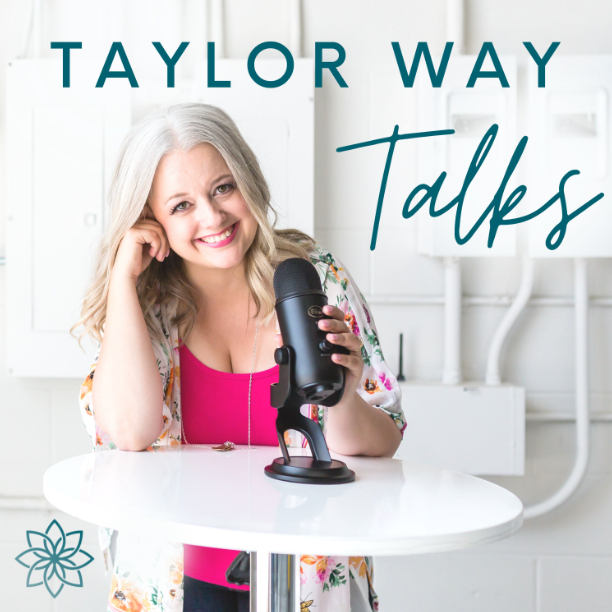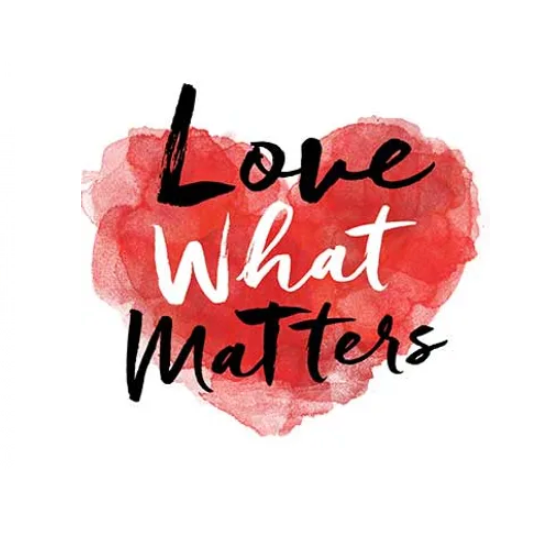
Taylor Way Talks
08 - Firing a Business Partner with Greg MacDonald
Dawn Taylor|10/10/2022
Dawn Taylor invites entrepreneur Greg MacDonald - owner of Jack Rabbit Contracting and co-owner of Align Home Design - onto the show to discuss balancing business, business partners, and having a family. What happens if a business falters or you need to divorce a business partner?
Greg MacDonald currently has two thriving businesses and a business partner he respects and enjoys working with. However, this wasn’t always the case. Greg explains to Dawn where things went wrong with his first business partner and how the breakdown manifested itself. They address feelings of guilt or inadequacy that come with such a situation and why there shouldn’t be either.
Dawn explores Greg’s experience on what was lacking in that first business partnership that he has found now. Greg has advice for what to prioritize in life and how to ensure you and your business partner are on the same journey for the same reasons. His story is full of honest insight and this episode contains important pieces of advice for anybody dreading going to work or in the process of divorcing a business partner.
About Greg MacDonald:
Greg MacDonald is the Owner of Jack Rabbit Contracting and Co-Owner of Align Home Design. He is an entrepreneur in the Edmonton construction industry, a husband, and a father of three kids. His company designs award-winning homes for builders and homeowners across Canada. Greg is a member of CHBA - Edmonton Region.
Resources Mentioned in This Episode:
- Katie Dooley of Paper Lime Creative
- Giveaway Link
—
Dawn Taylor - The Taylor Way: website | facebook | instagram | linkedin
Greg MacDonald - Owner, Jack Rabbit Contracting / Co-Owner, Align Home Design: align home design website | align instagram | align email | jack rabbit facebook | jack rabbit email
Transcript
Dawn Taylor: [00:00:08] Hey, hey, hey. Welcome to Taylor Talks. I'm your host, Dawn Taylor. And I'm so excited to be here today with the infamous Greg MacDonald. So he is the owner of Jackrabbit Contracting, co-owner of Align Home Design, he's an entrepreneur, but more importantly, he's a husband, he's a dad of three kids and just a really outstanding human being. So, Greg, welcome to the show. How are you doing?
Greg MacDonald: [00:00:44] Good. Thanks for having me. I'm really excited. I haven't seen you in person for like three years. So just the fact that I get to see your face again is amazing.
Dawn Taylor: [00:00:56] Oh, thank you. It's really good to see yours, too. So, Greg and I have a really cool topic today. One of the things that nobody talks about, or at least we haven't heard people talk about, is being entrepreneurs, being in business, often we take on business partners and often that doesn't work out. And I remember years ago having someone say that choosing a business partner is almost more important than choosing your spouse. And if you ever have to break up that relationship, it is like a divorce. And this is something that Greg had to deal with. And so we wanted to dig into this today and really talk about what that looks like, what he now has as a business partner, what the differences are in that way, but also all of the judgments and garbage that go into it and the thoughts of going into it and around the ending of that relationship. And when you should know, like at what point do you need to know that you should end it, if that makes sense. So, Greg, tell us a little bit about your story.
Greg MacDonald: [00:01:58] So I have been an on and off entrepreneur since I was a teenager. Like, whether it was like running my own paper business or stuff with theater lighting and rentals and stuff like that. Just trying to make some extra bucks. When I first came out here from Southern Ontario, I was headhunted. I was offered a really good job that moved into a management job, and then I just kind of like fell into this cog of this big machine where it became very apparent when like the housing market and stuff started to dip that you were no longer as important as you thought you were.
Dawn Taylor: [00:02:42] And welcome to every job on the planet, these days, it seems. Like zero security, unless it's a government job, I feel like.
Greg MacDonald: [00:02:52] Yeah, and even when it's a government job, you're wearing like a set of golden handcuffs. You're probably sacrificing something else, like you're sacrificing like happiness when it comes to some of those jobs because they're so draining and bureaucratic and like, you just can't stand it every day. Like, I remember, there were some jobs I was at and I had to, like, rally myself in the car just to get out and go to work that day. Coffee can only go so far. And then after that, you're like, I just can't be here anymore.
Dawn Taylor: [00:03:29] So red flag for anyone listening. If you have to rally yourself in a car to go into work in the morning, you probably need to reexamine your life choices.
Greg MacDonald: [00:03:40] Yeah, and I feel like there's going to be a lot of people being like, 'Yeah, yeah, yeah. I hate my job. Yeah, absolutely. I do that all the time'.
Dawn Taylor: [00:03:48] Oh, so many. So for you that turned into how do I do this on my own and create this on my own to be my own boss. But in that you took on a business partner. Talk to us about that.
Greg MacDonald: [00:04:02] So I had a co-worker at that job that I had to rally to show up to, and he was kind of in the same place, like we're both pretty young, had the ambition to do it, didn't have all the knowledge, but just kind of figured, 'We'll figure that out'. And then we just started to talk to people, started going on lunch meetings. I remember we used to always go to this same place and just kind of talk about like dreams of, you know, I think one of the biggest things that we wanted to do was go golfing every weekend. I think we went golfing once for a corporate event where you still had to be like on and working. Yeah, it was just like one of those things where it's like, 'Oh no, no, we don't get to do any of this fun anymore because now we have to like, focus on the business' and yeah, there was, I got to a point where I was in a junior position, still making a senior salary, and I could see the writing on the wall. Like I'd already already been moved, I was like, kind of like a shut down guy. Like I was in this department, they shut it down and they got me to clean everything up, and then they moved me to another department, they shut that down, got me to clean that up, and then I got pretty much tossed somewhere else for a little while. And I didn't want the leadership position anymore because my daughter had just been born and I was just in a different place. Like I just kind of just wanted to go to work and keep my head down and do whatever I wanted. But at the same time, I just had this mentality of like, this process sucks. I just want to make it better. So I would start to like, question things in meetings. And that's kind of when I kind of figured out, like, you guys don't want to be efficient, you just want to do it your way because that's how you feel like you should do it and you don't want to change. Like everyone, all the management was so resistant to change and that company is now have like a 9% turnover. Yeah, I think the best department was like drafting department.
Dawn Taylor: [00:06:21] So let's jump to, like, going into business because, I mean, obviously you picked the perfect business partner and it was dreamy and you're just, it just, you just killed it, right?
Greg MacDonald: [00:06:31] Yeah. Yeah. So I lost my job. He and I decided, like, let's take this shot, I don't like it here any more either. So he quit, like a few weeks later. And then we started to do construction stuff, and we always had the focus of building homes. Renovations were good, but you would have had to have done a lot of renovations and a lot of the work yourself. And I was already pushing 30 like 35 and I'm now like 36. So I was like early thirties when it happened. And I just got to a point where like, I can't do this anymore. Like, I'm just starting out. I'm not 20 years old anymore. Like, I can't do physical labor day in and day out. And I didn't see like an end for that. And I wanted to focus more on building houses. He wanted to focus on renovations and increasing volume, but by profiting, by bidding low, performing high. But I felt like a lot of the weight of it really fell on my shoulders on site because I looked after the site, he looked after the office. He had help. I did not. And it was just me out in the field. And I was like, man, this is not... I remember saying my concerns over and over and over and it not going anywhere. And I just got to a point where it's like, all right, then I'm I'm just going to sell you the company.
Dawn Taylor: [00:08:03] So let's talk about that for a second. When you went into business, you thought you had chosen the right partner. You thought you had chosen the right person to go into business with. And this is really like what we're wanting to dig into today is in that moment when you were like, 'Wait, I didn't choose the right person. This is not what I wanted my business to look like. This is not the direction I thought we were going in'. And there is so much stigma attached to that. Yeah, of like judgments and oh, you failed or oh, you couldn't make it work or all of these emotions because nobody talks about that. Nobody talks about the fact that you're like, 'Huh? No, I actually just need to make a hard pivot in my life right now. I need to change a lot of stuff'. Where does your brain go with that and how did you deal with those emotions that were coming up, even though because you and I both know you're super logical.
Greg MacDonald: [00:08:56] Yes.
Dawn Taylor: [00:08:57] But there's still the behind the scenes of like but I've marketed this business and people know me in this business. How did you deal with those emotions?
Greg MacDonald: [00:09:04] Yeah, we were kind of at the two year mark of our business, which there's a lot of statistics saying, if you make it past two years, you could have something like the likelihood of you moving forward into further years increases, for the odds. When we got to a point of I might have picked the wrong person, it was very clear to me when I needed support and it wasn't coming because the response of it was, 'This is your job, this is my job. I'm doing my job. You have to do your job'. And it's was like, 'Yeah, that might be the case, but it's our company'. So at the end of the day, if my job is suffering, that means your job is also suffering. And I felt like I couldn't get them on board with thinking with that mentality. Since then, that company is now been shut down and he partnered with somebody else and it seems to be going great. So as a friend, I always wish the best of them because he actually partnered with a mutual friend of ours. But I just knew that his business ethic and mine just were not the same. And it kind of got into that repeating feeling of like, I have to rally myself to go to work again. And I was like, 'This is not enjoyable anymore'. And it's when, jobs will lose their fun every once in a while. But when it becomes like a day to day thing and you're not like jazzed about your wins that you get with your job. And it just all seems like doom and gloom and you don't look forward to seeing that person anymore. It's a little different. It's also harder, too, because like when you're partnering with somebody, you are typically nine out of ten times partnering with somebody that you might have known a few years, but in reality you don't know how they were raised. You don't know how, where their core values are. And it kind of comes to light pretty soon after, like because you're with that person all day, every day. It's just like a marriage.
Dawn Taylor: [00:11:39] And pause right there. Say that again, its just like a marriage.
Greg MacDonald: [00:11:43] It is just like a marriage. Yeah. Like you have to love and respect that person and trust that person.
Dawn Taylor: [00:11:53] I think that's the biggest.
Greg MacDonald: [00:11:55] Yeah. And I don't mean, like, love, like, kissy huggy thing, but it's just like, 'Hey, no matter what, I got your back, you have mine. And we don't have to question that'. With my current partner in my current business, I feel that. But we also have like a 13 year relationship already. Like we went to college together. We pretty much stayed in touch over the years just because our building industry is very small. And I just have that trust because it's had more time to build on it. And I just I feel way more confident when it comes to that part of my current business relationship. But that was one of the issues with the last one is I felt like I was never trusted by them, like they just didn't trust they didn't trust me on like, could have been the smallest of things, but it just made things questionable all the time. And then that kind of reciprocated on me. And then I started to feel the same way about them and things just started to deteriorate and fall apart. And when I remember, there is this one time where we had like a big conflict that needed both of us to be there and present. And I just kind of got like the 'Nope, your problem, not mine, see you, I'm going home'. And I was like, No, you can't do that'. So it was hard. It was a hard decision because it was like, you're losing a friend or you might you lose a friend. Fortunately, like, we are still friends and we still have a business relationship again. But even when we were business partners, we didn't hang out. We didn't have that type of relationship. Our wives don't hang out and stuff and they could have a lot to relate with each other, like both being moms and everything, but they just aren't each other's cup of tea in a few ways, I guess. Then like, it's just we never really took those opportunities to like, sit outside and like go to the driving range and stuff on our free time. Like free time was used elsewhere, work time was used at work. It was a very surface, really surface level relationship. Never got into deep conversation, never got into discussing our core values and stuff. It was always like everything was questioned.
Dawn Taylor: [00:14:30] Do you think that looking back, had you had those times together, had you done that sort of like build the deeper relationship and know those things about each other, would you have been able to either save it and continue to build it, or would it have stopped you in the first place from ever even going into business with them?
Greg MacDonald: [00:14:54] I think it's a hard thing to answer because it's a really big what if and I always would like the to think the best of everybody, but I feel like if I knew a little bit more of how there was like a few core values that he had that I didn't and the visualization of where he wanted the company to progress to and what I wanted to do, that turned out to be very different things. And there's always that excitement of starting up your business.
Dawn Taylor: [00:15:37] Oh, always.
Greg MacDonald: [00:15:38] Going through all of that. And I've had seven businesses now. And all of them I've either built up to a point of selling for profit or I still have them. And it's exciting, always exciting starting it up. But I think like if I had the chance of like, if I really knew that person, I probably wouldn't have gone into business with them in the first place. I would also change my business structure. So if it was like it was my idea and I was bringing somebody in to to the idea, I'm keeping more percent of that business. It's like it's from now on, if I do a business, it's going to be my business. If I think that you're a good partner, you're coming along for the ride. But it's still like my thing. Like the core of it is my setup, the initiation, all that stuff. I don't have that with my other business right now. Like my business partner, who is amazing, she has a way different thought process than me. And she fills in all those little gaps that I don't have. And then I'm typically I'm the muscle, I would say, when it comes to like, if we need to crack the whip on something or like, just move forward and push forward and taking risk and making sure that's a calculated risk. But I would say that she would be a little more wary of taking risks just because this is her first business. And I'm like, oh, we're successful when we take more risks.
Dawn Taylor: [00:17:35] You're like, I've done this six times. I don't understand.
Greg MacDonald: [00:17:39] Yeah. And I like, I'm comfortable with fucking up.
Dawn Taylor: [00:17:44] Yeah.
Greg MacDonald: [00:17:45] And I think that you need, like, really tough skin in the business to fuck up sometimes and be okay with it.
Dawn Taylor: [00:17:53] Totally.
Greg MacDonald: [00:17:54] When you do something that costs you a lot of money. It's a tough pill to swallow because, like, you can go into something with best intentions and it just doesn't work out. And it's not like it's a bad idea. It's just not the right time. And I know a lot of people saw that with COVID, like, tons of people really that I know. Really good business models, really good work ethic, really good ideas. It just didn't work out for them because it wasn't the right time.
Dawn Taylor: [00:18:24] So let's talk about that for a sec, because that ties into it, right, is like the knowing when to quit.
Greg MacDonald: [00:18:32] Yeah.
Dawn Taylor: [00:18:32] Knowing when to actually walk away. And this is always my biggest challenge for people is release the ownership of your business in terms of, your identity should not be your business. Your worth should not be tied to your business, your emotional worth. Because when your identity becomes it, then if your business fails, if you have to change something, if something doesn't work, it very quickly can become like a I failed. I didn't work, I couldn't do it. And so when you can separate the two is like, No, no, your business is your business. It's your machine to do something, to make money, to help people, to whatever it is. But that whole idea of like, when do you quit? The course that you wrote that sucks or that nobody bought into when you actually just, like, delete it and move on and release the emotional attachment to it, the business partner or the direction your business was going or, you know what I mean? Like all of those things where it hits you in the gut and you're like, oh, but I can't. That means I suck or that I failed.
Greg MacDonald: [00:19:43] Yeah.
Dawn Taylor: [00:19:45] When for you is that like, okay, this is what I need to move on. And then how do you fight that demon voice in your head that's like, Oh. You suck, you fucked up.
Greg MacDonald: [00:19:58] I think you just need to have that optimist, have that optimism like, you did it once, you could do it again. Just kind of calculate. Calculate. What are the pros and cons? Like I know people, like you and I have done in this session where we do like a pro and cons board, and it's something that's so basic, but it just puts it right out there. And if your cons list is way higher and you're rallying to get out of your car and go to work or you don't feel supported or you are in like $80,000 debt. And next week, bill collectors are going to come. Sometimes filing for bankruptcy is the right thing to do. Granted, I would definitely advise the person to make that possibly their last ditch effort because of the repercussions that come with filing for bankruptcy. But it's not the end of the world.
Dawn Taylor: [00:21:02] Right there. It's not the end of the world. Right. That's that's so, like those few words that are so simple are so powerful.
Greg MacDonald: [00:21:10] Yeah. And for me, I think about the things that I know that I can't change or the things that are important. So then I think of like, is my job affecting me as a husband, as a father? Because I got one shot with my kids and then they're going to become teenagers. I got one shot with my wife. And if we just, if we get to this point of like even just working all day every day and not seizing those small opportunities to go on a vacation or do something, our kids are going to be all eighteen, moved out of the house, and then it's just my wife and I again, and we'll have nothing to talk about. Because we would have in the past like 18, 20 years, 25 years, we would have already grown into two completely different people than who we fell in love with. And that's a huge thing. And it's weird that I'm like, I've only been married for six years and I already know that.
Dawn Taylor: [00:22:15] Right.
Greg MacDonald: [00:22:16] And like, my parents had a good relationship. They had like, my dad's not with us anymore, but my mom and my dad, they fought, they loved each other. We went on trips. We valued time together. We valued time not together. We had a mix of everything. And my both of my parents were very conscious of being present in things that were important to my brother and I. And that is just something that I know that I need to do with my kids. And my kids, like, I was five, almost six year old, three, almost four year old, and a two and a half week old. And my kids drive me nuts half the time. And then other times they are great. Other times I just look at them like, Man, I really hope you don't grow up to be an idiot. Like, because what you just did was not the smartest thing. And I don't even want to deal with you right now. Like. I also try and seek my time, my time alone as well with my kids.
Dawn Taylor: [00:23:31] I was at a friend's house last winter and his son was eating dog food. And he's like, he was just over one. And I was like, isn't it amazing that he's going to go from that to you? Like at some point has to be a full fledged functioning adult. He's like, 'God, I hope so'.
Greg MacDonald: [00:23:51] They're like, I'll let my kids eat dog food every once in a while. It's a learning experience. It's not going to kill them.
Dawn Taylor: [00:23:57] We all did it.
Greg MacDonald: [00:23:58] Yeah, Yeah, we all did. And that's like, oh, like, that's a big concern of what I have with like, some of my kids' friends and just the way how they behave. And then I see like their, I see some of their parents and most of the parents are pretty present. But it's mainly the mums. Like, the mums are there. The mums are looking after everything. And then I just kind of think like, where is the dad, where is the dad and all this? And I don't want to be the guy who's like, I remember like when I got disciplined and stuff and my mom would always give you the wait till your father comes home and...
Dawn Taylor: [00:24:36] Oh, that line is still here. That reverberating in my head.
Greg MacDonald: [00:24:39] And that was my upbringing. And like my parents didn't hit us like, they they didn't do anything like that. They were both educators, too. But I remember just like shitting myself sometimes when I did something really dumb. And my dad would come home, like just before supper and we wouldn't get the chance to deal with him. And usually a conversation at the dinner table where you have like no chance of escape for at least 45 minutes.
Dawn Taylor: [00:25:10] Let's look back at business for a sec. And for someone listening who's like, shit, I'm in that position where I'm, either my business is going in a direction I don't want it to go in because I got caught up in it. My home life is falling apart because I'm not, my values aren't right. Like my balance isn't working and I don't believe that balance actually exists, personally. But I still think it comes down to your priorities and what's really important to you, right? You make time for things. Or like I really need to, you know, quote/unquote, divorce my business partner, move on and do something different. What are some recommendations for you, having gone from a business partner where you guys didn't align on values and didn't align on a lot of those things to having one that you absolutely love and adore, what are some of the things that somebody should be looking for in a business partner?
Greg MacDonald: [00:26:06] I think one of the biggest things that you need to do when you're starting out is with a business, with a new business partner, is getting an unanimous shareholder agreement going right away. It really brings out... it's a good opportunity to kind of segway into where your core values are and where that person kind of sits. Unfortunately, like every single business that I've been in, political stance has always been a factor. And it's like, yeah, like I'm not the type of person that's going to be all gung-ho for Trump or Jason Kenney or Justin Trudeau or like, literally anyboyd. I think that politicians and stuff are they're there kind of as placeholders for a little give and take on different things. And like, each party usually gravitates towards certain things because that's what their supporters usually vote for them for. And then every once in a while they do like a good thing and it's just like, Yeah, I don't support you, but yeah, I kind of can get behind that. Still don't like you as a person. I probably still won't vote for you, but at least it's like, Hey, you're kind of, you're speaking my language with this and then you got a bunch of funding and something else that I also believe in or my wife believes in. And I just think you're a jerk again.
Dawn Taylor: [00:27:38] So politics.
Greg MacDonald: [00:27:40] Yeah. So politics, core values. Like if you're a churchgoing person and your partner is too, and that was one of the things between my partner and I. He was very involved with the church. I married Mennonite, so at that time I was still relatively new to like going to church every Sunday again. I did as a kid, but then we just kind of stopped going. Pretty much once, like, my parents couldn't just toss us in Sunday school. They were just kind of like, you guys aren't sitting still on these pews, so we're out. And then that was it. Kind of like took back our Sundays. And I remember watching Sunday morning cartoons, which I probably learned more family values and having those chats with my dad and stuff and just having those heart and hearts than anything. So like, that was a factor, I would say. I feel like there's judgments that can go along with it if you're not careful. And then I'd say the other big thing is like, make sure you trust the person. And you don't have to trust them on everything, you just got to have their back. And hope that they have your back too, because if they don't, and you have like a crisis or you have something really important to deal with or even you fuck up, like if you make a mistake and it costs your company money, you should not be ridiculed by your partner for that. It should be, 'This is a learning experience. What did we learn?' Well, our thing is to double check the order before we order 5000 of the same thing and make sure the size is right. Because now you have a bunch of, like, coffee mugs that are like this big. I'm just using that as an example.
Dawn Taylor: [00:29:32] No, for sure.
Greg MacDonald: [00:29:33] But you just got to be, get that person behind your back. And if you're signing up for things that go on for three years, like we're a part of e-magazine with our current company and it's okay, but it's not exactly what I would have done. But I also don't look after advertising in my business. So I just kind of figured like, yeah, let's give it a shot. If we're committed for three years, then we're committed for three years. And I don't think it was the best idea, but something I got to live with now and my partner kind of kind of agrees. Like she's like, Yeah, it's okay. Like, it's nice for us to be there, but we also need to do like, extra advertising. And she's like the Instagram guru. So if you're ever looking at our company's Instagram, that's all her because like, I don't even know how to work my phone half the time. I'm not I'm not that type of tech savvy person. Yeah, I would say that those would be the biggest things. Yeah, I don't really have much else to add on.
Dawn Taylor: [00:30:40] No, that's okay. I think it's, something I've seen over all the years, right, of doing business coaching and different things I've done is... is like, really know how they function? How do they deal with stress? How do they deal with anxiety? How do they deal, like how do they deal with anger? All of those things. And to have like such a solid ground of communication going into it. And often it's like, whoa, whoa, whoa, slow down for a sec. And really also, like, check your intentions on why you're choosing that person and why you're wanting to go into business with them. Right? Why you're wanting to go into business in the first place. So for myself, like I'll get asked to write a course with somebody or do a program with somebody or do all those things. And in the past I would be like, yeah, let's do it. And then I'd get into the middle of it and be like, Oh, this isn't what I wanted, or this person doesn't work the way I want them to, or the communication is off or whatever, where I know even for myself now, I'm in the middle of creating a course with a friend and someone was like, 'Why did you choose them?' And I was like, because I know their integrity. I know their morals, their values, their standards, their ethics, what their intention is behind doing the course, why they're doing the course, the heart behind it. And those things align. Those things 100% align. So even if we hit the skids on something or even if something doesn't go right or something is hard, I know that behind the scenes, like we're doing it in the same way and then we can figure out the rest of it.
Greg MacDonald: [00:32:17] Yeah, and like most partnerships, you end up dividing the roles. We both look after our accounting and stuff. I look after I'd say some sales. I don't look after advertising because I don't have that mind frame compared to my partner now. And at the same time, I always try and make myself replaceable and I would advise any business owner to make yourself replaceable because like, what if there is ever a time that you fall into a coma and you can't respond and your business partner needs to still run that business until you get better. So that's what you're relying each other on. And it's like I use it as an analogy, like what happens if I get hit by a truck? So if I get hit by a truck, you open this folder that tells you everything, shows all the passwords to my stuff, you can access it. And here you go. And it's something simple as that. So like my family members, like if I passed away or something like that, my family members don't have to worry about that, that's something that my partner can look after. And I would do the same for them if they were in a similar situation. And then you just figure it out. You move forward, let all the clients know what happened and be open and honest. And we are very open and honest when it comes to all of our clients. Like we will not sugarcoat anything. And with doing like home design and stuff like that, everybody wants everything now. We just tell them like, Yeah, we're not starting your project for two and a half weeks, and then we make sure that we commit to that. So at two and a half weeks and say we were going to start.
Dawn Taylor: [00:34:18] And then you can start.
Greg MacDonald: [00:34:19] We're starting. Because if you don't, then you lose your integrity.
Dawn Taylor: [00:34:24] Totally. I think a lot of struggles, honestly, in business and in starting business is because the excitement factor is so big at the beginning. And the big dreams and that excitement, that endorphin, dopamine serotonin, or whatever, that rush is so fun. Like, let's be really honest. It is so amazing. But I feel like somewhere down the line someone needs to be like, slow it down, step back for a second. You need to look at your foundation of this. You need to look at the logistics, go through the stuff you don't want to think about now and get those things done. Literally, like slow it down for a second. So it's not just all emotional and emotional decisions and there's a bit more logic behind it.
Greg MacDonald: [00:35:11] I remember like one of my first companies, I got so excited, doing a logo. And I was like, way too absorbed figuring out a logo and a slogan and all this other stuff. And I'm like, at the end, now I'm just like, Does it represent the company? Does it look good? Will people remember it? Okay that's it. I go for like, give me something timeless. But I have relationships with people who do that stuff for a living. I don't do logos for a living. I'm just like, this is what I want, give me something. And then usually they come back to me and are like, 'Dude, you got to answer some questions and like, give me something. Don't just tell me to do it.' Then you gotta think about it. Yeah. No, I'm just saying that because we have a mutual friend who did my logo, and I know, I know that I did that to her. And then she came back and she's like, 'No, fill out this questionnaire'.
Dawn Taylor: [00:36:19] Right? We'll give her a plug. Katie Dooley. Paper Lime Creative. She's outstanding. But yes, she needs more than just do it.
Greg MacDonald: [00:36:28] Yeah, and she's great. She still looks after business cards and stuff for us and everything. And she did my contracting company's logo and I love it, but I just remember the struggle I was having doing that one. And I just got to a point where I'm just like, 'No, it's time to work now'. So like, logo, just finish it and actually maybe start making money because bank account's getting a little low.
Dawn Taylor: [00:36:57] Oh, it's so true though. We get so obsessed with, like the little finite detail things sometimes because it's easy and it's fun and it's exciting and it's but it's also there's a feel that goes with it, but we can definitely become too obsessed with it. So to finish off our talk today, I'm going to ask you a bunch of little silly questions, but as kind of a cat, if you're in those relationships, if you're in those situations, if you're in that work, that work or business situation where you're like dreading it, hating it, it's not aligning with who you are, it's not working for you... it's not the end of the world. Don't worry about people's judgments on it because they don't know the situation, they're not in the middle of it, they don't know what's going on. Really, who cares? We need to stop buying into those bullshit stories in our head of what we think people are saying or how they're judging or whatever's going on. Because at the end of the day, it doesn't matter. And Greg, you're a perfect example of as soon as you walked out of the hard of those two years, you managed to find something amazing and it was so much better.
Greg MacDonald: [00:38:04] Yeah.
Dawn Taylor: [00:38:05] So let's end this on some like just silly questions. We're also going to do a fun little giveaway in the show notes. You'll find that. Where we're going to just do like a fun little silly, like, top five or top ten red flag things to look at in a business partner that should make you run for the hills. So, Greg, what do you spend a silly amount of money on?
Greg MacDonald: [00:38:28] Fast food.
Dawn Taylor: [00:38:30] Oh, what's your favorite?
Greg MacDonald: [00:38:32] Oh, I... favorite or what do I get the most?
Dawn Taylor: [00:38:36] Ooh both.
Greg MacDonald: [00:38:37] Like, what do I get the most? McDonald's just because it's on the route to getting here. But nine out of ten times I finish eating it, same as like McDonald's or Tim Horton's breakfast sandwiches, like I hate Tim Horton's breakfast sandwiches. I'll probably still get one about once a month because I'm just like thinking like, Oh yeah, it might be better. But no, it never is. I would say my favorite fast food would be either chicken wings or pizza.
Dawn Taylor: [00:39:06] Nice. Okay, we do need to know, though, what's your McDonald's order?
Greg MacDonald: [00:39:11] Big Macs or Quarter Pounders.
Dawn Taylor: [00:39:13] Nice. What is your secret guilty pleasure way to decompress. Like, are you curling up on your couch watching, like, Housewives TV shows? Are you playing a random Xbox game? What is your secret guilty pleasure way?
Greg MacDonald: [00:39:28] I stay up super late after everybody's in bed and I know I should be going to sleep, but that's just my time. Guilty pleasure would be having a bath. And as a 36 year old man, and I'm trying to, like, have this masculinity thing. Like, I will put the most potpourri smelling bath salts in that and just sit and digest. And then I'll watch Netflix on my phone or something like that. I try to stay out of the YouTube vortex of just video after video. Otherwise you'll just never get anything done.
Dawn Taylor: [00:40:13] Oh, 100%. Best answer I've gotten to that, by the way, was like sex.
Greg MacDonald: [00:40:19] Sex? That's a guilty pleasure?
Dawn Taylor: [00:40:20] Yeah, like a lot of it. I was like, 'That's amazing'. What is one purchase of $100 or less that you've made in the last about six months that has most positively impacted your life?
Greg MacDonald: [00:40:37] What would it be? I buy new tools a lot. Like I'll have a budget, like if I'm doing a job, for the construction company, I'll have a tool budget. And if I stay on budget, then I'll buy a new tool. So I got some stuff for like doing some furnishings and doing some cabinetry and everything. I'm slowly collecting a number, I need like $20,000 worth of tools to build a house because we're going to tear down our house in a couple of years and rebuild. And I know I need like tools for it. So I just kind of made that list and I'm slowly crossing things off. And I get like such a win when I like cross one off. And I would say that. And it was like something simple, like a level. It was just a really big nice one and I got to cross it off that list and I was like super jazzed about it. And I'm like telling the kids, like, you can't touch this. Like, it's Dad's, and dad needs to keep it in good condition. And I think they've now figured out like, you just don't touch Dad's tools because they're also dangerous too. So I'm trying to keep them to not touch things like that.
Dawn Taylor: [00:41:50] If you could see how his whole body and face like lit up over this tool he's talking about.
Greg MacDonald: [00:41:57] Yeah.
Dawn Taylor: [00:41:58] Last one. What is an unusual habit or just like, random, absurd thing that you love?
Greg MacDonald: [00:42:04] That I love?
Dawn Taylor: [00:42:05] Yeah.
Greg MacDonald: [00:42:08] My kids randomly dance. And that's not my habit. That's theirs. There's actually one for me.
Dawn Taylor: [00:42:17] Oh, we need one for you, too. But that is awesome.
Greg MacDonald: [00:42:23] Random habit. I have a bunch that I don't love. Like biting my fingernails.
Dawn Taylor: [00:42:28] Yeah.
Greg MacDonald: [00:42:29] I would say. Just building little random things for, like, functionality. Like, I know you love your Lego and everything.
Dawn Taylor: [00:42:39] I really do.
Greg MacDonald: [00:42:42] My thing would be more the, I have a sectional in my basement and I had nowhere to put my drinks if I was sitting in the corner. So I built a little shelf and just mounted it on the wall will hold, like, literally a bowl and a glass. And that is it. And I just build it out of a scrap piece of wood. And it's like, yeah, this is perfect right here. And I love it. I use it all the time.
Dawn Taylor: [00:43:10] That is hilarious. I love that. That is good.
Greg MacDonald: [00:43:14] So I would say that's one of the things I did.
Dawn Taylor: [00:43:16] That was awesome. My husband is like that but he 3D prints it all. It's wild.
Greg MacDonald: [00:43:21] Yeah.
Dawn Taylor: [00:43:22]
So thank you so much, Greg, for hanging out with us today. I really hope this episode challenges somebody and makes them really think about if they're in the right position in their lives, if they're not. Reach out. Reach out to myself. Reach out to Greg, even. If you're like, okay, how do I do this, how do I divorce my business partner? One of us would love to give you some advice and let her walk you through that. Please check out the show notes, we're going to have a fun giveaway there for you. And thank you. Thank you. Thank you for listening today. And if you enjoyed the episode, please leave a review on Apple or Spotify.
Follow the podcast
If you want to receive new podcast episodes automatically, you can follow us on Apple Podcasts or in your favourite podcast app.
Please leave us an Apple Podcasts review
Ratings and reviews from our listeners are extremely valuable to us and greatly appreciated. They help our podcast rank higher on Apple Podcasts, which exposes our show to more awesome listeners like you. If you have a minute, please leave an honest review.






